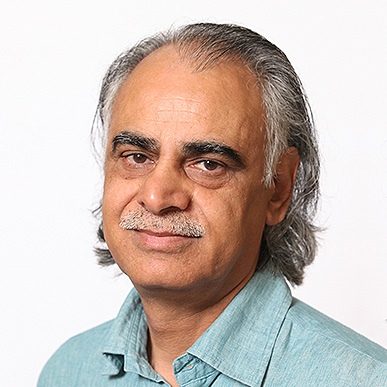Introduction to postnormal times. Ziauddin Sardar


Ataya: HUMA Interdisciplinary Seminar Series

Project/Paper: See postnormaltim.es, download The Postnormal Times Reader, and read these papers: ‘The Smog of Ignorance’ in Futures 120 (2020) and ‘Welcome to Postnormal Times’ in Futures 42 (2010), by Ziauddin Sardar; and a special issue of World Futures Review focused on ‘Postnormal Matters’ (Volume 13, Number 2, June 2021).
Bio: Ziauddin Sardar, writer and cultural critic, is Editor of the quarterly Critical Muslim. Former Professor of Law and Society at Middlesex University London, UK, and columnist on New Statesman, he is the author of over fifty books, including the international bestseller Why Do People Hate America? (Icon Books, 2002) and two volumes of highly acclaimed autobiography, Desperately Seeking Paradise: Journeys of a Sceptical Muslim and Balti Britain: A Provocative Journey Through Asian Britain. A collection of his writings is available as Islam, Postmodernism and Other Futures: A Ziauddin Sardar Reader (2003) and How Do You Know? Reading Ziauddin Sardar on Islam, Science and Cultural Relations (2006). His latest books are Reading the Qur’an, Mecca: The Sacred City (Hurst, 2011) and A Person of Pakistani Origins (Hurst, 2018). Professor Sardar is Director of the Centre for Postnormal Policy and Futures Studies (CPPFS) and is credited with the development of postnormal times theory.
Topic: All that was ‘normal’ has now evaporated; we have entered postnormal times, the in-between period where old orthodoxies are dying, new ones have not yet emerged, and nothing really makes sense. To have any notion of a viable future, we must grasp the significance of this period of transition which is characterised by three Cs: complexity, chaos and contradictions. These forces propel and sustain postnormal times leading to uncertainty and different types of ignorance that make decision-making problematic and increase risks to individuals, society and the planet. Postnormal times demand that we abandon the ideas of ‘control and management, and rethink the cherished notions of progress, modernisation and efficiency. The way forward must be based on virtues of humility, modesty and accountability, the indispensable requirement of living with uncertainty, complexity and ignorance. We will have to imagine ourselves out of postnormal times and into a new age of normalcy – with an ethical compass and a broad spectrum of imaginations from the rich diversity of human cultures.